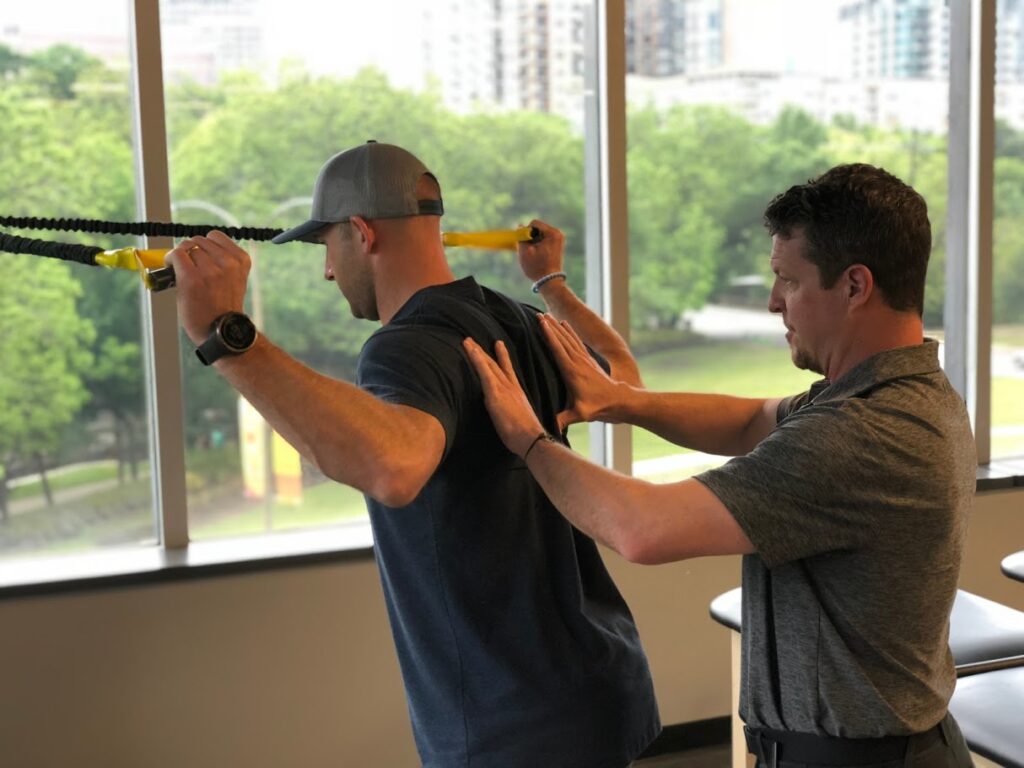ACSM Certified Inclusive Fitness Trainer (CIFT) Certification Review (2025)
Read this ACSM Certified Inclusive Fitness Trainer (CIFT) Certification Review to decide if the ACSM CIFT Certification is worth it and what the best personal training certification is for you.

Is the ACSM Inclusive Fitness Trainer Certification right for you? Are you passionate about fitness and helping others of all backgrounds achieve their wellness goals? If so, the ACSM Certified Inclusive Fitness Trainer (CIFT) Certification might be the perfect fit for you. In this comprehensive review, we will explore everything you need to know about this esteemed certification, including its purpose, requirements, benefits, exam content, study resources, exam logistics, and career opportunities. Whether you’re a fitness professional looking to upskill or a newcomer to the industry, this article will provide valuable insights to help you make an informed decision.
Discover everything you need to know about the ACSM Certified Inclusive Fitness Trainer (CIFT) certification in this comprehensive review. Whether you want to learn how to become a personal trainer, or learn how to become a fitness influencer, or learn how to open a gym, or learn how to start a fitness business, or anything in between, use the Exercise.com platform to accomplish your fitness business goals.

You can start an online personal training business, make a fitness app, learn how to make money selling workout plans online, put in-person personal training marketing ideas into action, use personal training income ideas to find personal trainer career options that will put you on track for the highest paying fitness jobs, and many other ways to make money from fitness doing what you love.
With the Exercise.com platform you have the best online fitness coaching software and the best software for fitness influencers all in one! (Not to mention the best gym software and the best personal training software).
Create workout plans.

Manage clients.


Run online fitness challenges.
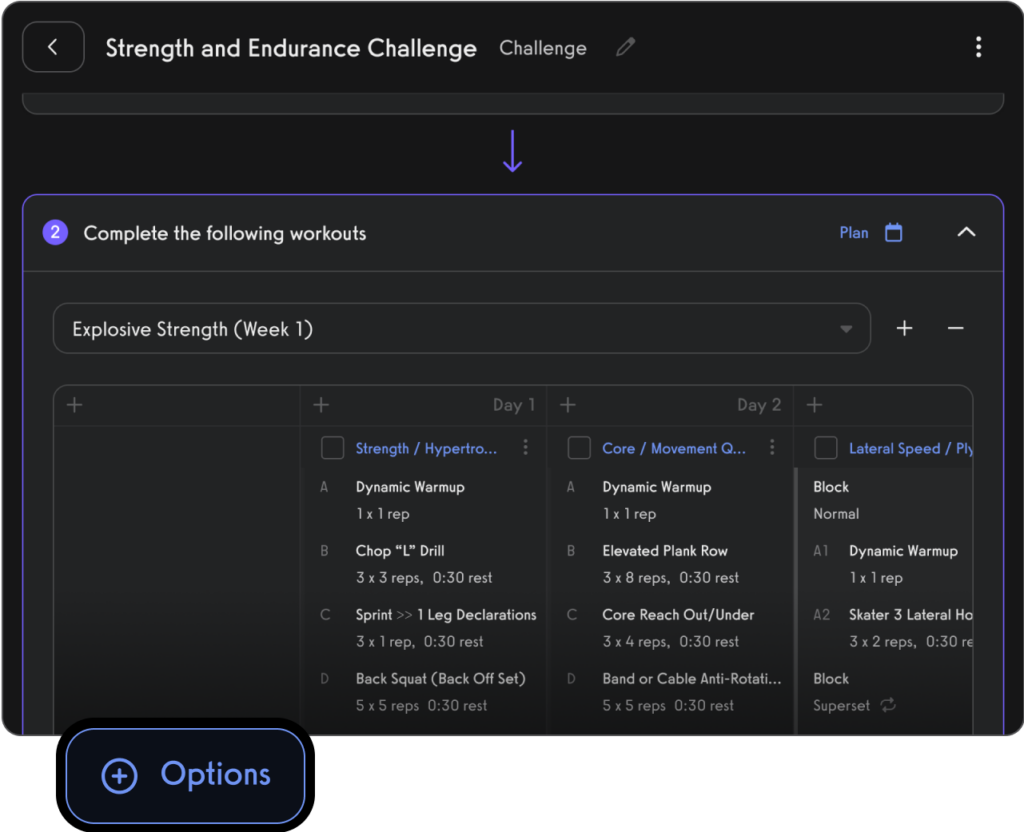
Create and sell fitness memberships, products, and digital offers.

Manage, message, and market to your online personal training clients and leads.
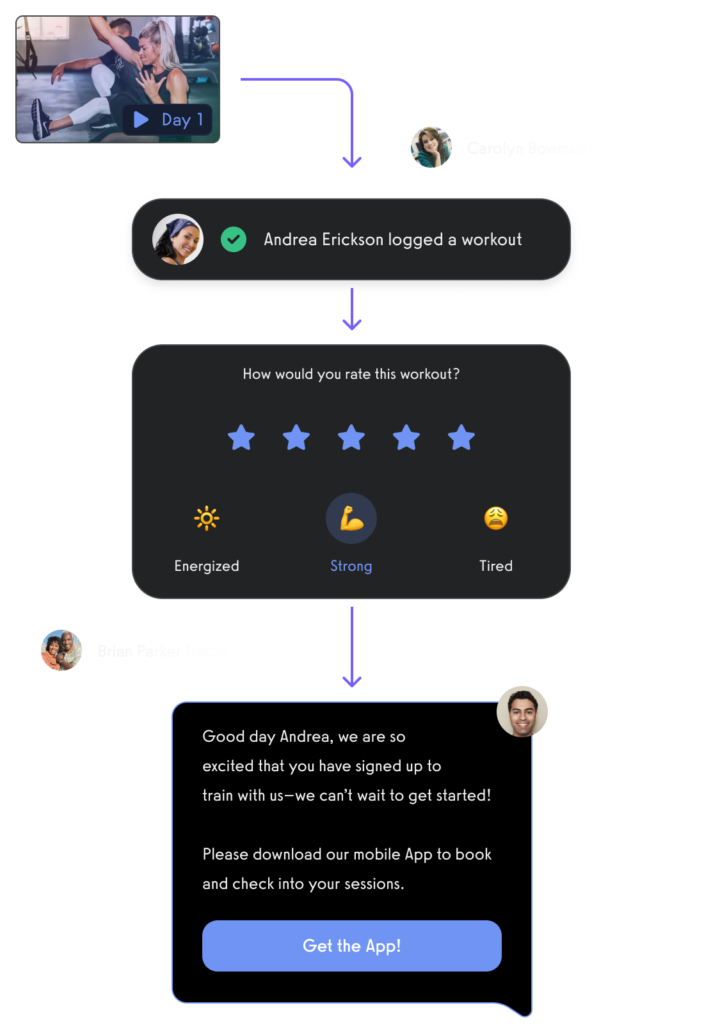
All from your very own custom branded fitness apps.

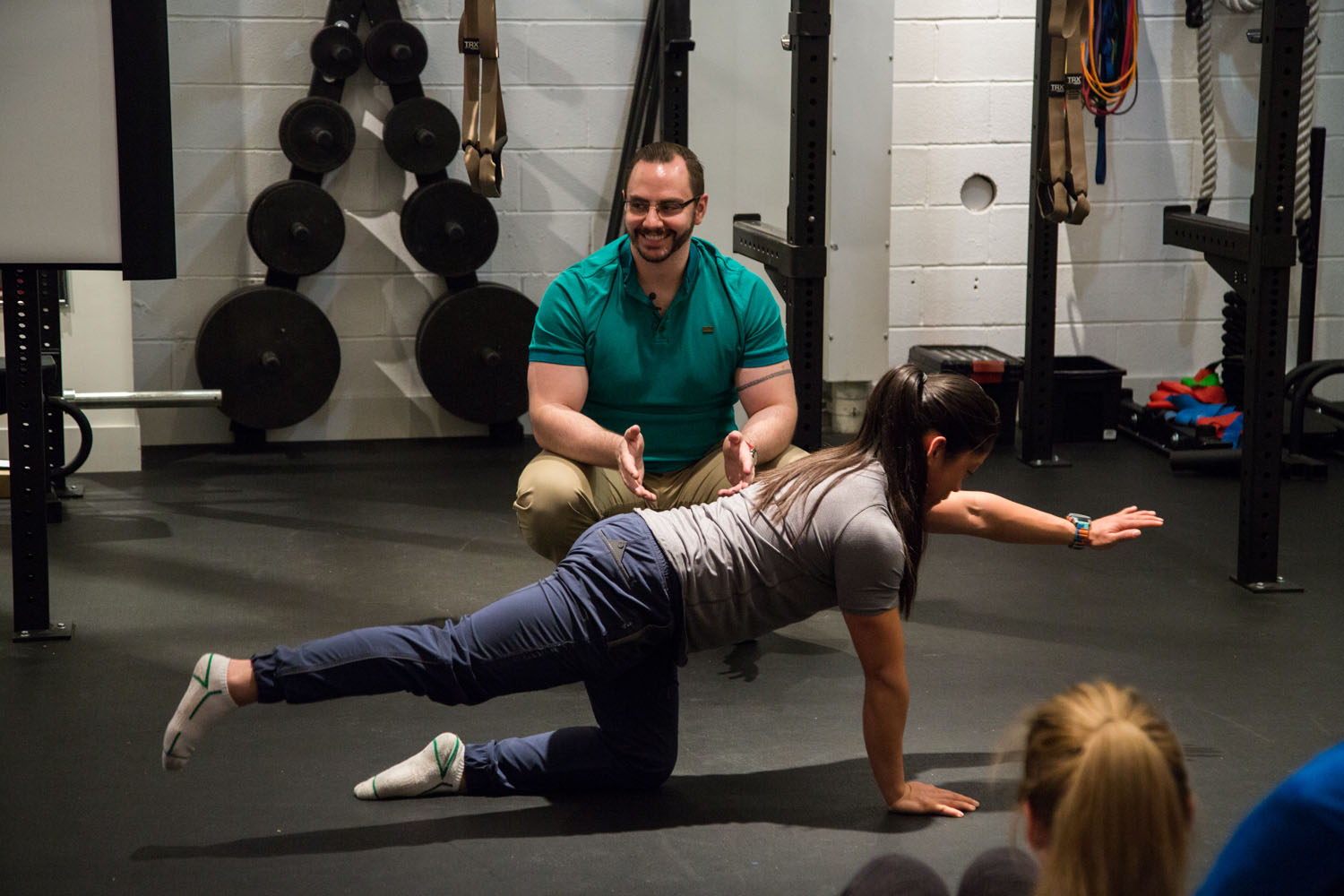
ACSM Certified Inclusive Fitness Trainer (CIFT) Certification
If you’re committed to promoting inclusivity and accessibility in the fitness industry, the ACSM Certified Inclusive Fitness Trainer (CIFT) Certification is designed with you in mind. This certification equips fitness professionals with the knowledge and skills to work with individuals of all abilities, ensuring safe and effective exercise programming for everyone. The CIFT certification goes beyond traditional personal training techniques, focusing on adaptations, modifications, and inclusive practices to create an environment that accommodates diverse populations.
If you have a passion for making fitness accessible to everyone, the ACSM CIFT Certification is the perfect avenue to pursue. By obtaining this certification, you’ll gain a deeper understanding of the unique needs and challenges faced by individuals with disabilities or limitations. This knowledge will enable you to create tailored exercise programs that cater to their specific requirements, helping them achieve their fitness goals while fostering a sense of inclusivity and empowerment.
ACSM CIFT or Another Certification?
Opting for the ACSM Certified Inclusive Fitness Trainer (CIFT) certification is a commendable decision for fitness professionals dedicated to inclusivity, focusing on adapting fitness programs to meet the needs of individuals with physical, sensory, or cognitive disabilities.
What is the ACSM Certified Inclusive Fitness Trainer Certification?
The ACSM Certified Inclusive Fitness Trainer (CIFT) certification is designed for fitness professionals who want to specialize in creating accessible and effective fitness programs for people with disabilities, ensuring everyone has the opportunity to achieve their health and fitness goals.
ACSM-CIFT General Information
CIFT certification equips trainers with the knowledge and skills to make fitness environments more inclusive, addressing barriers that people with disabilities might face in traditional fitness settings.
ACSM Credibility and Reputation
ACSM is renowned for its evidence-based approach and high standards, making the CIFT certification well-respected in the fitness industry, especially in the realm of adaptive fitness.
Is ACSM CIFT Worth It?
For those passionate about fostering inclusive fitness communities, the CIFT certification is invaluable, opening up opportunities to work with a diverse client base and make a significant impact on their quality of life.
ACSM CIFT vs Other Adaptive Fitness Certifications
ACSM’s CIFT certification stands out due to its comprehensive curriculum that covers a wide range of disabilities and adaptive strategies, backed by the latest research and best practices in the field.
Exclusive PTP CIFT Offers
Integrating Exercise.com’s best personal training software with ACSM CIFT certification allows trainers to customize workout plans, track progress, and ensure accessibility, enhancing the training experience for individuals with disabilities.
Who is the ACSM CIFT Certification Meant For?
The CIFT certification is ideal for fitness professionals, physical therapists, and rehabilitation specialists who are committed to improving accessibility in fitness and want to provide supportive, adaptive training environments.
ACSM CIFT Cost
Investing in the ACSM CIFT certification involves examination fees, study materials, and potentially additional courses focused on adaptive fitness and inclusive training methods. The cost of the ACSM CIFT Certification varies based on ACSM membership status, registration fees, and any additional study materials or workshops chosen. Typically, the exam fee ranges from approximately $279 to $349 for ACSM members, with non-members paying a higher fee. Additional costs for study materials and preparation courses may apply.
Specialized Study Materials
ACSM offers targeted resources for CIFT exam preparation, including guidelines on adaptive exercise equipment, communication strategies, and legal considerations for working with clients with disabilities.
ACSM CIFT Certification Review – Content Coverage
The CIFT certification curriculum addresses the specific needs of individuals with a variety of disabilities, including mobility, sensory, and cognitive challenges, and provides strategies for creating inclusive workout plans.
Adaptive Exercise Programming
- Techniques for modifying exercises and using adaptive equipment to meet the unique needs of each client.
Understanding Disabilities and Barriers to Fitness
- Comprehensive knowledge of various disabilities and how they can affect participation in fitness activities.
ACSM CIFT Exam Prep and Study Materials
ACSM provides a range of exam prep tools for the CIFT certification, including online courses, textbooks, and workshops, all aimed at equipping candidates with the necessary knowledge and skills.
ACSM CIFT Certification Requirements
To qualify for the CIFT exam, candidates must meet specific educational and professional prerequisites, often including a background in health, fitness, or rehabilitation, and training in inclusive fitness.
ACSM CIFT Salary
With a CIFT certification, fitness professionals can access specialized roles within inclusive fitness centers, rehabilitation facilities, and community programs, potentially leading to higher earning opportunities due to the specialized nature of the work.
Taking the Final ACSM CIFT Exam
The CIFT exam assesses the candidate’s ability to apply inclusive fitness principles, adapt exercises, and create supportive training environments for individuals with disabilities.
ACSM Continuing Education and Recertification
Maintaining the CIFT certification requires ongoing education in inclusive fitness, ensuring that trainers stay current with advancements in adaptive exercise and inclusive training practices.
Other ACSM Offerings
Beyond the CIFT certification, ACSM offers a variety of certifications and specializations catering to different interests within the health and fitness industry, including those focused on specific populations and health conditions.
ACSM CIFT Overall Rating
Pros
- Specialized focus on inclusive fitness for individuals with disabilities
- Recognized and respected by ACSM’s reputable standards
- Enhances the trainer’s ability to create accessible and supportive fitness environments
Cons
- Requires commitment to specialized education and training in adaptive fitness
- May necessitate ongoing effort to stay informed on inclusive fitness trends and technologies
The ACSM Certified Inclusive Fitness Trainer (CIFT) certification is a pivotal qualification for fitness professionals aiming to make fitness accessible to all, regardless of physical, sensory, or cognitive abilities. By leveraging Exercise.com’s best personal training software, CIFT certified trainers can offer personalized, adaptive fitness programs, track client achievements, and foster an inclusive fitness community. This certification not only elevates the professional’s expertise but also plays a crucial role in promoting health, wellness, and inclusivity in the fitness industry.
Understanding the purpose and requirements of the CIFT certification
In order to become an ACSM Certified Inclusive Fitness Trainer, candidates must meet specific eligibility and prerequisites. This section will outline the educational and experience requirements, as well as the step-by-step process for becoming certified. We will also discuss the benefits of pursuing the CIFT certification and the advantages it brings to both the trainer and their clients.
One of the key requirements for the CIFT certification is a strong educational background in exercise science or a related field. This ensures that candidates have a solid foundation of knowledge in anatomy, physiology, and exercise programming principles. Additionally, candidates must possess a valid CPR/AED certification to ensure they have the necessary skills to respond to emergencies during training sessions.
Another important aspect of the certification process is gaining practical experience working with individuals of diverse abilities. This can be achieved through internships, volunteer work, or employment in fitness facilities that cater to inclusive populations. By actively engaging with individuals who have disabilities or limitations, candidates can develop a deeper understanding of their unique needs and challenges, preparing them to provide effective and inclusive training.
Benefits of becoming an ACSM Certified Inclusive Fitness Trainer
Becoming a CIFT is not only a tremendous personal accomplishment, but it also opens up new opportunities for fitness professionals. CIFTs are highly sought after in the industry, and this section will highlight the advantages of having this certification on your resume. From increased job prospects to higher earning potential, the benefits are numerous.
One of the major advantages of being a CIFT is the ability to make a positive impact on the lives of individuals with disabilities or limitations. By providing inclusive fitness training, you can help them improve their physical health, boost their self-confidence, and enhance their overall quality of life. This rewarding aspect of the profession is often cited as one of the main reasons fitness professionals choose to pursue the CIFT certification.
Furthermore, CIFTs often have a competitive edge in the job market. With the growing demand for inclusive fitness programs, many fitness facilities and organizations are actively seeking trainers who are knowledgeable and experienced in working with diverse populations. By obtaining the CIFT certification, you position yourself as a qualified professional who can meet this demand, increasing your job prospects and potentially leading to exciting career opportunities.
Overview of the certification process and timeline:
The journey to becoming a CIFT involves several stages, from meeting the prerequisites to passing the certification exam. We will explore these steps in detail, providing valuable insights and tips to help you navigate the process efficiently.
The first step in the certification process is ensuring that you meet the educational and experience requirements. This may involve completing a degree in exercise science or a related field, as well as gaining practical experience working with individuals of diverse abilities. Once you have met these prerequisites, you can proceed to the next stage.
The next stage involves registering for the CIFT certification exam. This comprehensive exam assesses your knowledge and understanding of inclusive fitness training principles, as well as your ability to apply them in real-world scenarios. It covers topics such as exercise programming modifications, accessibility considerations, and communication strategies for working with diverse populations.
After successfully passing the certification exam, you will officially become an ACSM Certified Inclusive Fitness Trainer. This achievement not only demonstrates your expertise in inclusive fitness training but also signifies your commitment to promoting inclusivity and accessibility in the fitness industry.
As you embark on your journey as a CIFT, it is important to continue expanding your knowledge and staying updated on the latest advancements in inclusive fitness training. This can be achieved through continuing education courses, attending conferences and workshops, and actively engaging with the inclusive fitness community.
In conclusion, the ACSM Certified Inclusive Fitness Trainer (CIFT) Certification is a valuable credential for fitness professionals who are passionate about promoting inclusivity and accessibility in the industry. By obtaining this certification, you gain the knowledge, skills, and practical experience necessary to work effectively with individuals of all abilities, ensuring safe and inclusive exercise programming for everyone. The benefits of becoming a CIFT are numerous, from personal fulfillment to increased job prospects. So, if you’re ready to make a difference and create a more inclusive fitness environment, the CIFT certification is the perfect path to embark on.
Eligibility and Prerequisites for the CIFT Certification
Educational and experience requirements for aspiring CIFTs:
The ACSM has specific guidelines for individuals interested in pursuing the CIFT certification. To be eligible for the certification program, candidates must possess a strong educational background and relevant work experience. The educational requirement typically includes a minimum of a bachelor’s degree in exercise science, kinesiology, or a related field. This foundation in academia ensures that CIFTs have a solid understanding of the scientific principles behind exercise prescription and fitness assessment.
In addition to the educational requirement, candidates must also demonstrate practical experience in the field. This can be achieved through a specified number of hours working as a fitness professional, such as a personal trainer or exercise physiologist. The ACSM recognizes the value of hands-on experience in developing the necessary skills to effectively work with diverse populations and tailor exercise programs to individual needs.
Common questions and concerns often arise regarding the educational and experience requirements. Prospective CIFTs may wonder if their degree is equivalent to the mentioned fields or if their work experience is sufficient. The ACSM provides detailed guidelines and resources to address these concerns, ensuring that individuals have a clear understanding of the eligibility criteria.
Preparing for the CIFT certification exam:
Once the eligibility criteria are met, it’s essential to prepare effectively for the certification exam. The CIFT exam covers a wide range of topics, including exercise physiology, nutrition, anatomy, and exercise prescription. To maximize success on the exam, candidates should create a comprehensive study plan that covers all these areas.
There are various resources available to aid in exam preparation. The ACSM offers study materials, such as textbooks and practice exams, which are specifically designed to align with the content of the CIFT exam. These resources provide candidates with the opportunity to test their knowledge and familiarize themselves with the format of the exam.
Additionally, seeking additional support from qualified professionals can be beneficial. Working with a mentor or joining study groups allows candidates to engage in discussions and gain insights from experienced individuals in the field. This collaborative approach to studying can enhance understanding and retention of the material.
Application process and fees:
Before taking the exam, candidates must complete the application process and pay the necessary fees. The application process involves providing detailed information about educational background, work experience, and professional references. This information helps the ACSM ensure that candidates meet the necessary requirements and are eligible to take the exam.
Once the application is submitted, candidates are required to pay the examination fee. The fee covers the costs associated with administering the exam and processing the application. It is important for candidates to review the fee structure and understand the payment process to avoid any delays or complications in their application.
In conclusion, the CIFT certification program has specific eligibility and prerequisites that aspiring individuals must fulfill. Meeting the educational and experience requirements, preparing effectively for the certification exam, and completing the application process are all crucial steps towards becoming a Certified Inclusive Fitness Trainer.
Exam Content and Format
Detailed breakdown of the topics covered in the CIFT certification exam:
The certification exam assesses candidates’ knowledge and understanding of various topics relevant to inclusive fitness training. This section will provide a comprehensive overview of the exam content, including exercise physiology, programming adaptations, exercise safety, and communication techniques.
In the section on exercise physiology, candidates will learn about the body’s physiological responses to exercise, including the cardiovascular and respiratory systems’ adaptations. They will also explore the different energy systems and how they contribute to physical performance. Understanding exercise physiology is crucial for designing effective training programs and maximizing clients’ fitness gains.
Programming adaptations is another important area covered in the exam. Candidates will delve into the principles of program design, including exercise selection, intensity, volume, and progression. They will also learn how to modify training programs to meet the specific needs and goals of diverse populations, such as individuals with disabilities or chronic conditions.
Exercise safety is a critical aspect of inclusive fitness training, and the exam content reflects this. Candidates will study proper exercise technique and form, as well as how to identify and address potential safety risks. They will also learn about the importance of proper warm-up and cool-down protocols, as well as injury prevention strategies.
Effective communication is key in the fitness industry, and the exam content includes a section on communication techniques. Candidates will learn how to establish rapport with clients, listen actively, and provide clear instructions. They will also explore strategies for motivating and empowering clients, as well as how to effectively communicate with individuals from diverse backgrounds.
Understanding the format and structure of the exam:
Knowing what to expect on exam day can help alleviate anxiety and enhance performance. This section will delve into the format and structure of the CIFT certification exam, providing insights into the types of questions and the overall exam duration.
The CIFT certification exam consists of multiple-choice questions, where candidates are presented with a question and several answer options. Candidates must select the most appropriate answer from the given choices. The exam also includes scenario-based questions, where candidates are presented with a real-life situation and must analyze it to determine the best course of action.
The exam duration is typically three hours, allowing candidates ample time to carefully read and answer each question. However, time management is crucial, as candidates must allocate enough time to review their answers before submitting the exam. Understanding the exam structure and timing will help candidates plan their approach and optimize their performance.
Tips for successful exam preparation and performance:
Preparing for any certification exam can be challenging, but with the right strategies, success is within reach. This section will offer valuable tips and techniques to help candidates effectively prepare for the exam and perform at their best on test day.
One key tip is to create a study schedule and stick to it. Breaking down the exam content into manageable chunks and allocating specific study time for each topic will ensure comprehensive coverage. Candidates should also consider using a variety of study resources, such as textbooks, online courses, and practice exams, to reinforce their knowledge and understanding.
Practicing with sample questions is another effective exam preparation strategy. This allows candidates to familiarize themselves with the types of questions they may encounter and practice their problem-solving skills. Additionally, reviewing and analyzing their performance on practice exams can help candidates identify areas of weakness and focus their study efforts accordingly.
Maintaining a healthy lifestyle during the exam preparation period is also crucial. Prioritizing sleep, exercise, and nutrition will ensure candidates’ mental and physical well-being, which are essential for optimal cognitive function and performance. Taking regular breaks and engaging in stress-reducing activities, such as meditation or hobbies, can also help candidates stay focused and motivated.
By following these tips and strategies, candidates can approach the CIFT certification exam with confidence and increase their chances of success. Remember, preparation is key, and a well-prepared candidate is more likely to perform at their best and achieve their certification goals.
Study Resources and Preparation Materials
Recommended textbooks and reference materials for studying:
Choosing the right resources is crucial to exam success. This section will highlight recommended textbooks and reference materials that cover the core concepts tested in the CIFT certification exam. These resources will assist candidates in deepening their understanding of inclusive fitness training.
Online courses and study guides for the CIFT certification:
In addition to traditional textbooks, online courses and study guides can be valuable tools for exam preparation. This section will explore various online resources that offer comprehensive CIFT training programs, making learning accessible and convenient.
Practice exams and sample questions to aid in preparation:
Practice makes perfect, and the same applies to certification exams. This section will discuss the importance of practicing with sample questions and full-length practice exams and provide strategies for incorporating them into your study routine.
Taking the CIFT Certification Exam
Scheduling and registration process for the exam:
Once fully prepared, it’s time to schedule and register for the exam. This section will guide candidates through the scheduling and registration process, ensuring a smooth and stress-free experience.
What to expect on the day of the exam:
Exam day can be nerve-wracking, but being well-prepared can help alleviate stress. This section will outline what candidates can expect on the day of the CIFT certification exam, from check-in procedures to exam rules and regulations.
Tips for managing test anxiety and performing your best:
Test anxiety can hinder performance and impact exam results. In this section, we will provide practical strategies to help candidates manage test anxiety and maintain focus throughout the exam.
Maintaining and Renewing the CIFT Certification
Continuing education requirements for CIFTs:
After successfully obtaining the CIFT certification, professionals must stay up to date with industry advancements. This section will detail the continuing education requirements and the importance of ongoing learning to maintain the certification.
Options for earning continuing education credits:
To fulfill the continuing education requirements, CIFTs have several options available. This section will explore various avenues for earning continuing education credits, such as workshops, conferences, and online courses.
Renewal process and fees for the CIFT certification:
Renewing the CIFT certification is crucial to ensure its validity. In this section, we will outline the renewal process, including necessary paperwork, documentation, and associated fees.
Career Opportunities and Advancement with the CIFT Certification
Job prospects and potential employers for CIFTs:
With the demand for inclusive fitness trainers on the rise, CIFTs enjoy a wide range of career opportunities. This section will explore potential job prospects and employers, including fitness centers, rehabilitation facilities, and community organizations.
Salary expectations and earning potential with the certification:
While making a difference in people’s lives is rewarding, it’s also essential to consider the financial aspect. This section will discuss salary expectations and earning potential for CIFTs, providing insights into the financial rewards that come with this certification.
Advancement opportunities and potential career paths for CIFTs:
As a certified inclusive fitness trainer, you have the potential to advance your career and explore various paths in the fitness industry. This section will highlight advancement opportunities, such as becoming a specialized trainer or transitioning to a management role.
The ACSM Certified Inclusive Fitness Trainer (CIFT) Certification is a groundbreaking certification that empowers fitness professionals to provide inclusive and adaptable training to individuals of all abilities. By acquiring this certification, trainers not only expand their career opportunities but also positively impact the lives of their clients. With comprehensive exam preparation, the right resources, and a commitment to continuing education, you can become a highly skilled and respected CIFT.
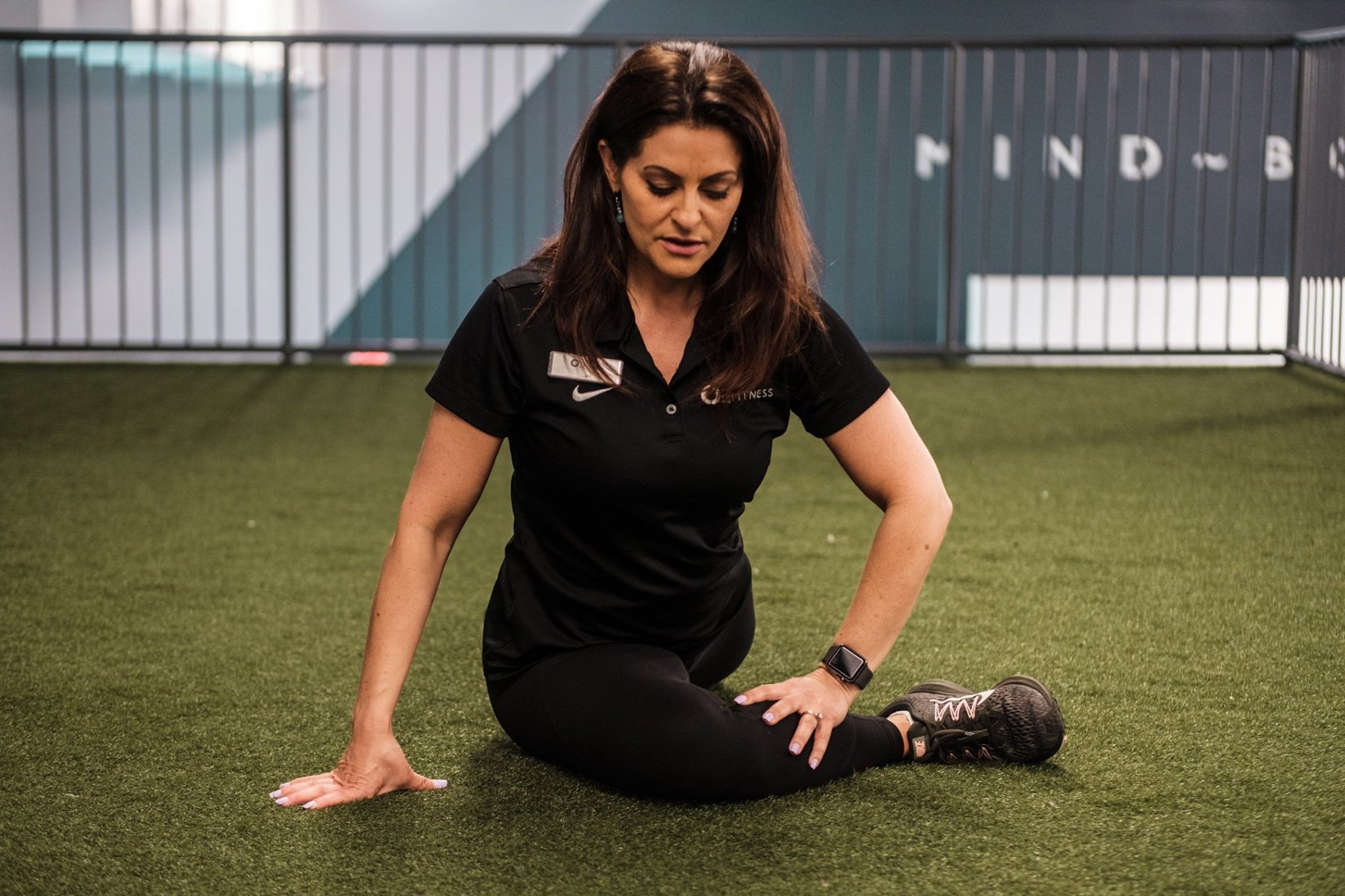
Is the ACSM Certified Inclusive Fitness Trainer (CIFT) Certification worth it?
The ACSM (American College of Sports Medicine) Certified Inclusive Fitness Trainer (CIFT) Certification is highly valuable for fitness professionals who aim to create and implement safe, effective, and adapted physical activity programs for individuals with physical, sensory, or cognitive disabilities. This certification is particularly beneficial for those dedicated to promoting inclusivity and accessibility in fitness settings, ensuring that all individuals, regardless of their abilities, have the opportunity to benefit from exercise. Given ACSM’s reputation in exercise science and its commitment to diversity and inclusion, the CIFT certification can significantly enhance your ability to serve a wider range of clients and contribute to positive social change in the fitness industry.
How difficult is the ACSM CIFT Certification exam?
The ACSM CIFT Certification exam is considered challenging due to its specialized focus on working with clients who have various disabilities. The exam covers a broad spectrum of knowledge, including understanding specific disabilities, creating adapted exercise programs, and using assistive devices and technologies. Adequate preparation through ACSM’s study materials and a strong foundation in exercise science, along with an understanding of disability inclusion, are key to successfully passing the exam.
How credible is the ACSM’s CIFT Certification?
The ACSM’s CIFT Certification is highly credible within the fitness and health industry, especially in the context of adaptive and inclusive fitness. ACSM is a leading organization in exercise science and health promotion, and its certifications are recognized for their scientific rigor and professional relevance. The CIFT certification underscores ACSM’s commitment to inclusivity and excellence in fitness training, making it a respected credential for professionals in the field.
How many people pass the ACSM CIFT Certification exam on the first try?
Specific pass rate statistics for the ACSM CIFT Certification exam on the first attempt are not publicly disclosed by ACSM. However, the certification’s focus on adaptive fitness and inclusivity suggests that candidates with a thorough understanding of these areas and who are well-prepared through ACSM’s educational resources have a higher likelihood of passing the exam.
What is the pass rate of the ACSM CIFT Certification?
The exact pass rate for the ACSM CIFT Certification exam is not published by ACSM. The certification is designed to ensure a high standard of competency in inclusive fitness training, indicating that a comprehensive grasp of adaptive physical activity programming and a commitment to inclusive practices are necessary for a good chance of success.
How does the ACSM’s CIFT Certification compare to other inclusive fitness certifications?
The ACSM CIFT Certification stands out for its scientific foundation, comprehensive approach to inclusive fitness, and the credibility of ACSM as a leading organization in exercise science. Compared to other inclusive fitness certifications, the ACSM CIFT may offer a more in-depth exploration of working with clients with disabilities, backed by the latest research and best practices in the field.
Is the ACSM CIFT Certification test open book?
The ACSM CIFT Certification exam is not open book. It is a proctored exam that assesses the candidate’s knowledge and skills in creating and implementing inclusive fitness programs without the use of reference materials or external aids.
How many times can you fail the ACSM CIFT Certification exam?
ACSM allows candidates to retake the CIFT Certification exam if they do not pass, but a retake fee applies. The specific retake policy, including any limits on the number of attempts or required waiting periods between attempts, should be confirmed directly with ACSM.
What can I do with an ACSM CIFT Certification?
With an ACSM CIFT Certification, you can work in various settings such as fitness centers, rehabilitation facilities, community health programs, and specialized adaptive sports organizations. The certification equips you to assess, design, and implement exercise programs tailored to individuals with disabilities, enhancing their access to physical activity and supporting their health and wellness goals.
How expensive is the ACSM CIFT Certification?
The cost of the ACSM CIFT Certification varies based on ACSM membership status, registration fees, and any additional study materials or workshops chosen. Typically, the exam fee ranges from approximately $279 to $349 for ACSM members, with non-members paying a higher fee. Additional costs for study materials and preparation courses may apply.
What happens if you don’t pay ACSM for the CIFT Certification?
Non-payment for the ACSM CIFT Certification could result in the inability to access study materials, schedule the exam, or receive the certification. It’s crucial to meet all financial obligations to ACSM to complete the certification process successfully.
How long is the ACSM CIFT Certification good for?
The ACSM CIFT Certification, like other ACSM certifications, is valid for three years. Certified individuals must earn a specific number of Continuing Education Credits (CECs) and pay a recertification fee before the end of each three-year cycle to maintain their certification and stay current with the latest practices in inclusive fitness training.
How can I learn more about inclusive fitness training?
To learn more about inclusive fitness training, consider pursuing specialized education like the ACSM CIFT Certification, attending workshops and conferences focused on adaptive physical activity, engaging in continuing education opportunities related to disability and exercise, and staying informed about the latest research and developments in the field of inclusive fitness.
How can I integrate inclusive fitness principles into my practice?
Integrating inclusive fitness principles into your practice involves gaining a deep understanding of the needs and abilities of individuals with disabilities, conducting comprehensive assessments to determine appropriate adaptations, designing personalized exercise programs that accommodate various limitations, and fostering an inclusive environment that promotes accessibility and participation for all clients.
How can Exercise.com help me run a successful inclusive fitness-focused business?
Exercise.com can help run a successful inclusive fitness-focused business by providing comprehensive business management software tailored for fitness professionals. The platform includes features for creating personalized exercise programs with adaptations for disabilities, managing client and group sessions, conducting online consultations and training, tracking client progress, and automating various business tasks, enabling you to efficiently manage your practice and deliver high-quality, inclusive fitness services to a diverse client base.
